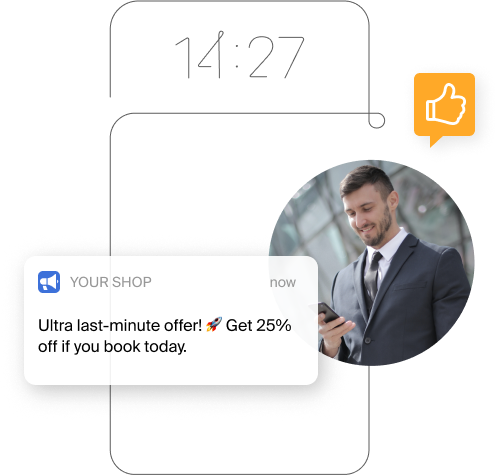As millions of travellers pack their bags this summer season, their stress levels decrease at the promise of a new adventure or a long-awaited rest. However, for those who’ve had a frustrating travel planning experience, the tenseness doesn’t go away that easily.
In a survey of 3,000+ U.S. adults, Bankrate revealed that 77% of respondents have had a travel-related problem this season, while 82% are worried about running into a problem. While the increased prices are the biggest concern for over half of respondents, the other major issues they are facing include long waits (25%) and poor customer service (25%).
In a related report by iSeatz, 84% of respondents said the most frustrating part of travel planning are user experience-related issues. Considering that 63% said they would pay more to get better support, it is obvious that travel and hospitality organisations need to prioritise this aspect as the new travel season peaks. By enabling additional support channels via SMS or messaging apps, they can increase availability and immediacy, as well as unlock new customer engagement opportunities.
Suggested for you: 5 Top Customer Engagement Trends for 2023 & Beyond
Support travellers and guests on their preferred communication channel
With consumers increasingly using SMS and messaging apps in their daily lives, they’re expecting similar levels of immediacy and convenience from businesses as well. 93% of respondents in Zendesk’s 2022 Customer Experience Trends Report said they’d spend more if a company provides their preferred option to reach customer service.

For organisations struggling to accommodate high demands during the peak travel season, enabling support services through SMS, Viber, WhatsApp, and AI chatbots can contribute to increased customer satisfaction. SMS and messaging apps make it easier for your customers to reach out on the go and also engage with your promotional content. Even if your priority is to improve customer support experiences, additional communication channels can come in handy when you decide to engage your customers post-travel.
In addition to these, you can also use AI chatbots to streamline support workflows without hiring additional staff. AI chatbots help automate repetitive inquiries across multiple channels and save your live agents’ time for urgent and sensitive conversations.
Remove friction from customer journey with automated reminders
One of the ways to help travellers keep their stress levels low is to make it easy for them to find booking, payment, and service information on your site. The 2023 Hilton report revealed that 56% of travellers are looking for easy travel experiences, meaning they’d hardly tolerate complex forms or scheduling processes.
Booking sites and organisations enabling online scheduling and purchases can greatly improve customer flows by sending timely SMS reminders on the payment or service status. Viber and WhatsApp can also be used for this purpose as they are more likely to be instantly read and responded to than an email.

Capture the moment of spontaneity
Spontaneity is a popular mechanism to avoid travel planning stress (and get the most exciting deals!). An N26 survey from last year found that 31% of Europeans were spontaneous about their trips and willing to travel on short notice.
To capture their sentiment with a lucrative deal, hotels, restaurants, booking sites, and other travel companies can promote limited-time offers at peak times. If you can track your customers’ previous bookings or purchases on your website or within your app, perhaps you can predict the time when they are most likely to complete such an action. At that moment, you can provide them with highly personalised offers via SMS or a messaging app to ensure visibility and increase the chance of a conversion.
Travel marketers can benefit from such strategies as they help engage the audience that is most likely to repeat a booking or purchase with their business. In the eyes of a customer, this shows that a brand cares and helps build long-lasting relationships.
Promote loyalty program benefits
Spontaneous travellers are certainly a significant group of your audience, but there are a lot more of those ready for long-term engagements in exchange for loyalty perks. According to the Hilton report, 42% of travellers take into account loyalty perks such as award points or discounts when choosing their travel vendors. In a more comprehensive Expedia Group report, 11,000 respondents revealed what they value in loyalty programs the most. The top five benefits include:
- 52% – Special discounted pricing
- 46% – Collecting points and redeeming them for future purchases
- 42% – Complementary upgrades, add-ons or other perks
- 34% – Exclusive access to amenities and service
- 32% – Receiving an overall better experience
This is another aspect where additional communication options can help you. Solutions such as CPaaS by GMS let you easily build cross-channel campaigns to promote loyalty perks or send notifications on the available credits. This helps you engage your customers with relevant offers, increase conversions, and build loyalty.
Get personal on every level
Knowing when to deliver a special offer and to which of your audience segments is key to personalisation. This approach is becoming growingly popular as consumers increasingly expect personalised offers and communications from their favourite brands. The Invoca 2023 report reveals that 47% of online buyers considers personalisation a factor when deciding whether to do or continue doing business with a company, while 42% said they would trust such a company more.
In the travel and hospitality industry, this figure is even higher with 86% or respondents in the Hilton report claiming they’d be looking for more personalisation during their 2023 travels. This means hotels, restaurants, vacation rental owners, and everyone else participating in this journey should plan to prioritise personalisation strategies to meet their customers’ expectations.
Let AI-powered virtual assistants do the job for you
With most travellers visiting multiple sites when making travel plans, they’re likely comparing prices, availability, and overall offers. As they do that, they want specific information fast and AI chatbots are more than competent to deliver it.
Properly trained NLU (Natural Language Understanding) chatbots are able to understand complex questions and quickly browse your database for the most adequate response. Rather than navigating multiple pages and reading FAQs on your website, your visitors can get their responses in a matter of seconds. This is likely to help leave a positive impression about your offer and make the visitor choose you over your competitors.
Unsurprisingly, travel and hospitality industry professionals have an overwhelmingly positive sentiment towards AI technologies. 96% of Swift survey respondents said that AI tools will positively affect travel customers’ journey as this technology gets integrated into the different support, marketing, and sales processes.
Conclusion
The summer might be the peak of the travel season, but the reality for Travel and Hospitality businesses is that they can never afford to deliver anything but exceptional customer experiences. By enabling convenient and immediate interactions across all customer-preferred channels, they can foster trust, build loyalty, and ensure success regardless of their specific line of business.
For additional information on the brand communication channels available from GMS, contact us here.

